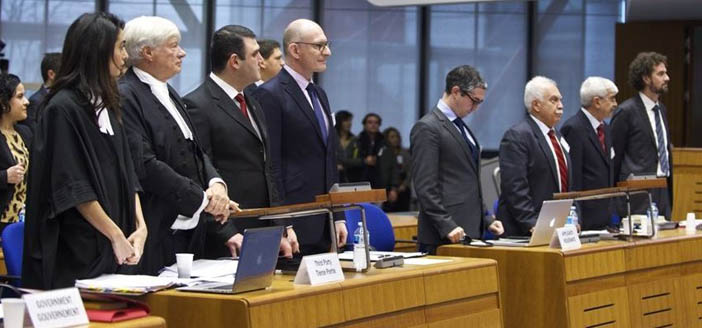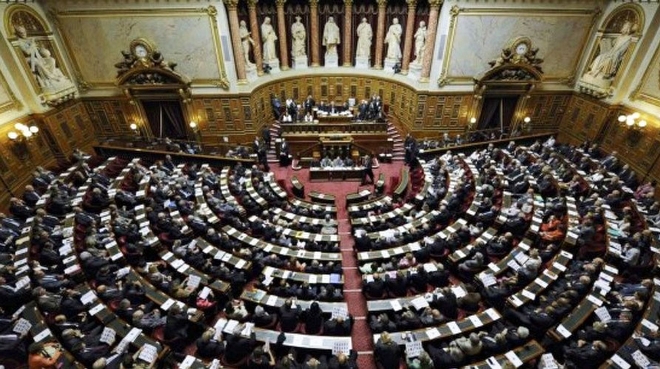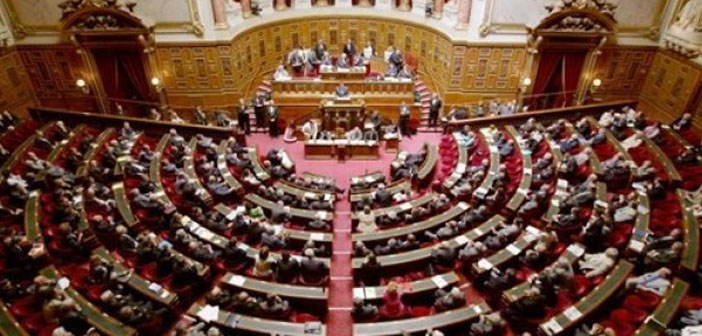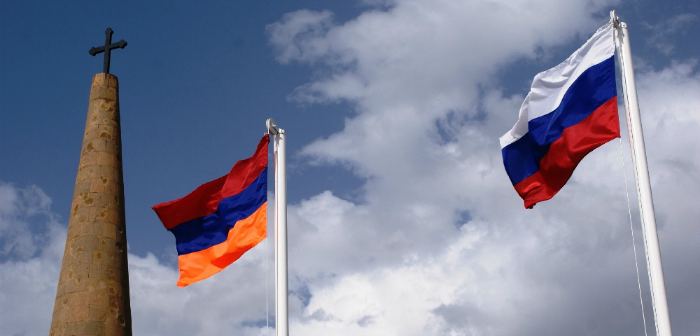The ‘Genocide Case’ hearing was held at the Grand Chamber of the European Court of Human Rights on January 28. A high number of politicians and civilian society leaders from Turkey, Armenia and the Diaspora were present in the courtroom. The case has also attracted interest from the international press since Amal Clooney represents Armenia. It could take up to a year for the reasoned decision in the case to be issued.
(STRASBOURG) As the hearing at the Grand Chamber brought intense action to the usually laid back city of Strasbourg, it also triggered many debates around the issues of struggle against racism, hate speech and the freedom of expression. It is a great source of interest what Europe, which strictly bans the denial of its ‘own genocide’, the Holocaust, in this case based on the Armenian Genocide. The previous verdict, taken with two of the seven judges voting against it, ruled that Perinçek had used his right to freedom of expression. The Swiss courts had ruled that Perinçek’s statements amounted to hate speech.
The first signs of action in Strasbourg began with the arrival of Turks from Turkey and various countries of Europe to support Perinçek. It was also notable that many people arriving in coaches were wearing scarves with the logo ‘Talat Pasha Committee’.
The first person I interviewed in Strasbourg was Sarkis Shahinian, Honorary President of the Switzerland-Armenia Association, who initiated the process that has continued to this day by filing the lawsuit against Perinçek at the local court in Lausanne. Shahinian stated that everyone in Switzerland knew that Perinçek’s goal was not to contribute to the ‘heated debate’ – to use the wording of the 2nd Section of the ECHR – regarding the Armenian Genocide, or to use his right to freedom of expression; and that he hoped that the Grand Chamber would realize this.
People started to gather in front of the courthouse from 7 o’clock in the morning on January 28. Then the coaches arrived, however, the numbers did not reach the figures expected by the Turkish side. Some officials from Turkey I talked to in the courtroom told me that they had expected a crowd of 3-4 thousand, and that they were disappointed. A small group who stated they were Alevis had also gathered in front of the ECHR building, and they told me that they had come to give support not to Perinçek, but to this ‘national cause’. Let us add that these people had not gathered on behalf of any Alevi organization, and were there as individuals.
The first scene of significance in the court room was former Republican People’s Party Chairman Deniz Baykal and former Justice and Development Party EU Minister Egemen Bağış sitting side by side and flashing smiles all around, as if to prove that a ‘national cause’ is able to create a ‘national consensus’. As the pair took their place in the court room along wide the Grand National Assembly of Turkey Foreign Affairs Commission Chair Ahmet Berat Çonkar, the question I posed regarding why lawyer and human rights activist Eren Keskin had been convicted for violating Article 301 only last week was left unanswered.
The panel of judges, which also featured Işıl Karakaş from Turkey, determined the order of statements as Perinçek, Switzerland, Turkey and Armenia. The two parties, Perinçek and Switzerland, were allocated longer periods than the two intervening countries, Turkey and Armenia.
Perinçek and Turkey based their defence on the previous verdict of the 2nd Section of the ECHR. Perinçek’s defence largely focused on the theme of freedom of expression, adding that he had no enmity towards Armenians, that his words should not be construed as hate speech, and that he made contributions to debates on the basis of the conclusions he had reached in his ‘academic’ works. Turkey’s intervention was used to transmit the idea that the Armenian Genocide did not exist, and here I witnessed how much experience its century-long denialist policy had brought Turkey. Stefan Talmon used the entire allocated time without hesitating once to present the denialist discourse.
Geoffrey Robertson and Amal Clooney, representing Armenia, focused on the past and the present, respectively. Robertson stated that Perinçek was a denialist who wanted to propagate hate speech; while Amal Clooney made a presentation explaining that there should be no doubt that the events of 1915 amount to Genocide. Although we witnessed outstanding presentations from two successful human rights lawyers, there were also some in the courtroom who were of the opinion that Armenia’s representation by a ‘famous person’ could act as a disadvantage in the eyes of the court.
On the other hand, the legal team representing Switzerland clearly wanted to make a real contribution that would add a further dimension to the hearing. The intervention stated that the penal code of Switzerland had been formed to struggle against racism and discrimination, that this had been done in harmony with the United Nations International Convention on the Elimination of All Forms of Racial Discrimination and that the verdict of the 2nd Section of the ECHR was uncalled for, and that the verdict of the Lausanne local court was just and appropriate.
Past Grand Chamber decisions have been issued on average within 8 to 12 months. In this time, the Chamber will continue its examination and reach a verdict.
‘ECHR had linked the Hrant Dink murder to the denial of the Genocide’
The consortium made up of the Human Rights Association, the Truth Justice Memory Centre and the Toronto-based
What are the main premises of the opinion you presented?
Our opinion has two main premises. The Lower Chamber took a verdict only on the basis of Perinçek’s statement’s impact on Armenians in Switzerland. Article 10 of the European Convention on Human Rights on the freedom of expression, disregards the issue of the impact on victims. However, there is such a restrictive aspect involved in the freedom of expression. Those who are victims in this case are the relatives of those who survived the Genocide… We put forward the reflections in Turkey of Perinçek’s statements. Secondly, we included Doğu Perinçek’s activities with the Talat Pasha Committee in our opinion. Thus, we are stating that Perinçek’s actions are directly aimed at the discrimination of Armenians in Turkey. It is the first time the Court is treating a genocide other than the Holocaust, therefore there is some confusion. Jurisprudence will eventually emerge for the Armenian Genocide, too. One should not forget that in a previous decision, the ECHR very clearly pointed at a link between Hrant Dink’s assassination and the denial of the Genocide.
The fact that the Genocide has appeared on the agenda on its 100th anniversary with this case is a second threat and cause of sorrow for those who have experienced this pain. It seems that the government in Turkey, too, exhibits the same stance as Perinçek, and lends its support to Perinçek.
‘Perinçek set a trap’
We met with Samim Akgönül, lecturer at the Strasbourg University, historian and political theorist, and talked about the Perinçek v. Switzerland case.
I know you opposed it when the denial law was on the agenda in France. What is your view of the law in Switzerland, and the case at the ECHR?
First of all, let me state that I am against denial laws, since I fully support the principle of freedom of expression. On the other hand, I believe that this type of law, that imposes a prohibition, always encourages people to seek ways in which to flout the ban. Switzerland issued such a law, and I now see that I was right in my reservations at the time. Because such a law existed, Doğu Perinçek and his team carried out this act of provocation. The law in Switzerland encouraged that group regarding the matter. After all, Doğu Perinçek’s desire was to have such a law, so he could create the environment we are witnessing now. To bring the Armenian Genocide to an international platform, and to do this within the framework of freedom of expression… They by no means abide by a principle of defending the freedom of expression; they do not defend the expression of opposing views. This process, unfortunately, was a trap. If the Grand Chamber acts structurally consistent, I believe a verdict similar to that of the 2nd Chamber will be given. Perinçek’s team will have set the trap well, the court will not be able to find any call for violence in his statements in Switzerland, because he will have taken special care of that in advance. A well-calculated provocation…
What is your view of the hierarchy the Court presupposes between the Holocaust and the Armenian Genocide? Will the Grand Chamber adopt a similar stance?
Europe has always treated the two genocides within a hierarchy. Because the philosophical foundations of what we today call Europe is based on facing the Holocaust. That process played a constructive role for Europe. It is difficult to expect the reversal of that hierarchy in Strasbourg, in the centre of Europe. This has to be understood. The Armenian Genocide is relatively distant to Europe, and its local reality in these respects.





